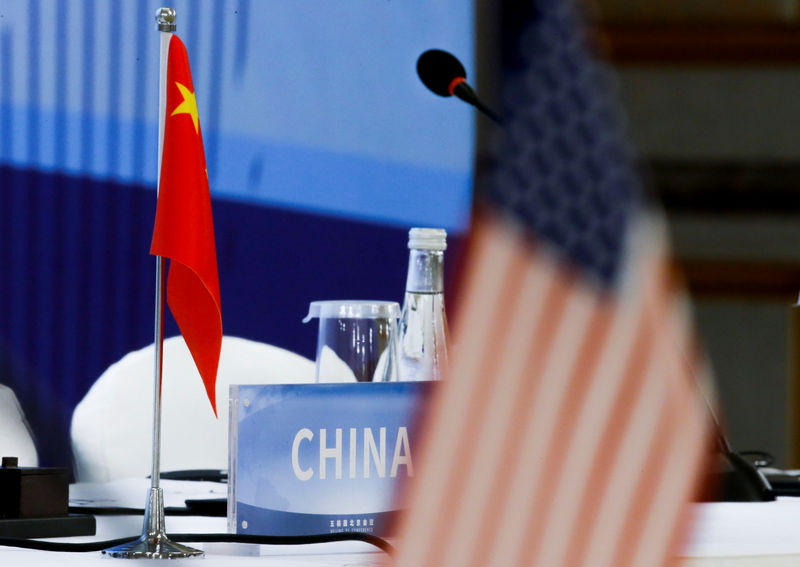(Bloomberg) -- The U.S. House of Representatives is expected to vote Tuesday on another human rights bill that has already elicited threats of retaliation from China and could add to difficulties in completing a trade deal between the world’s two largest economies.
The measure would impose sanctions on officials responsible for oppressing Uighurs, a Muslim ethnic group in western China, and follows legislation supporting Hong Kong protesters signed into law last week by President Donald Trump. Chinese state media said Tuesday that the government would soon publish a list of “unreliable entities” that could lead to sanctions against U.S. companies.
China had already moved to sanction some human rights organizations and halt U.S. naval visits to Hong Kong in response to two new U.S. laws -- one to place Hong Kong’s special trading status under annual review and the other to ban the export of crowd control devices to the city’s police.
Hu Xijin, editor-in-chief of the Communist Party-backed Global Times tweeted that U.S. officials may face visa restrictions and limited travel to Xinjiang province, where the Uighur minority is concentrated.
Legislation to hold China accountable for human rights violations has received rare bipartisan support in a Congress that is otherwise bitterly divided along party lines regarding whether to impeach Trump. That creates a difficult dilemma for the president, who can’t afford to lose political capital opposing Congress, but this week recognized that signing the Hong Kong legislation is making a trade deal this year increasingly unlikely.
Trump said Tuesday in London that “I have no deadline” for a trade deal with China and that he’d be willing to wait another year before getting an agreement that favors the U.S. “It can’t be an even deal,” he told reporters. “If its an even deal, it’s no good.”
The House version of the measure on Uighurs amends a Senate bill, S. 178, passed without objection in September. It adds provisions that require the president to sanction Chinese government officials responsible for the repression of Uighurs, a predominantly Muslim Turkic ethnic group, and places restrictions on the export of devices that could be used to spy on or restrict the communications or movement of members of the group and other Chinese citizens.
Lawmakers, recognizing the momentum behind human rights legislation concerning China, are working to resolve differences between the House and Senate bills to agree on one version that can pass swiftly through Congress before the end of the year.
“It’s not about the particulars of it, it’s not about the policy of it,” said Senator Marco Rubio, the lead sponsor of the Senate version of the bill, said of the changes proposed in the House. The Florida Republican said there’s broad agreement about the underlying goals of the legislation.
Among other provisions, the bill requires the U.S. president to submit to Congress within 120 days a list of senior Chinese government officials guilty of human rights abuses against Uighurs in Xianjiang or elsewhere in China. That list would include Xinjiang Party Secretary Chen Quanguo and officials responsible for mass incarceration or “reeducation“ efforts targeting Uighurs and other predominantly Muslim ethnic minorities.
The president would be required to impose visa and financial restrictions on the listed individuals under the Global Magnitsky Act.
The bill would also tie U.S. policy toward China to the Chinese government’s actions in Xinjiang and the treatment of the Uighurs. It would require the State Department to submit a report to Congress on human rights violations in the region.
“We need to get something sent over here that’s acceptable to both sides and that we could hopefully persuade Banking to waive jurisdiction on it,” Rubio said, referring to the Senate Banking Committee, which has jurisdiction over export controls.
The House will vote on the bill under suspension of the rules, which means House leaders expect a two-thirds majority -- also the margin necessary to override a presidential veto. That would send the measure back to the Senate.
Rubio said that to pass the legislation by the end of the year, any changes would need to be “pre-cleared” by the relevant committees so the bill could be passed by unanimous consent in the Senate.
